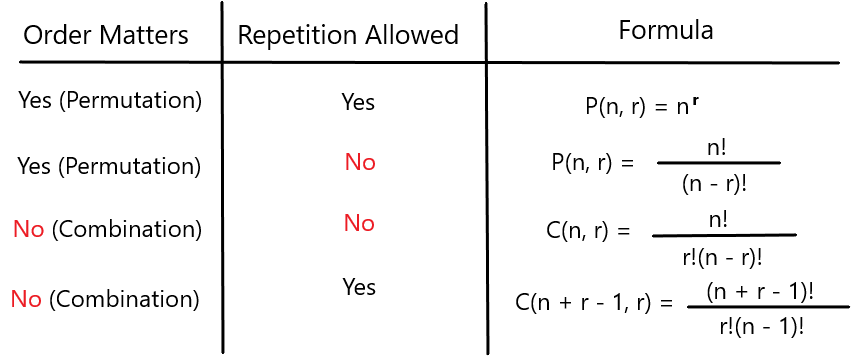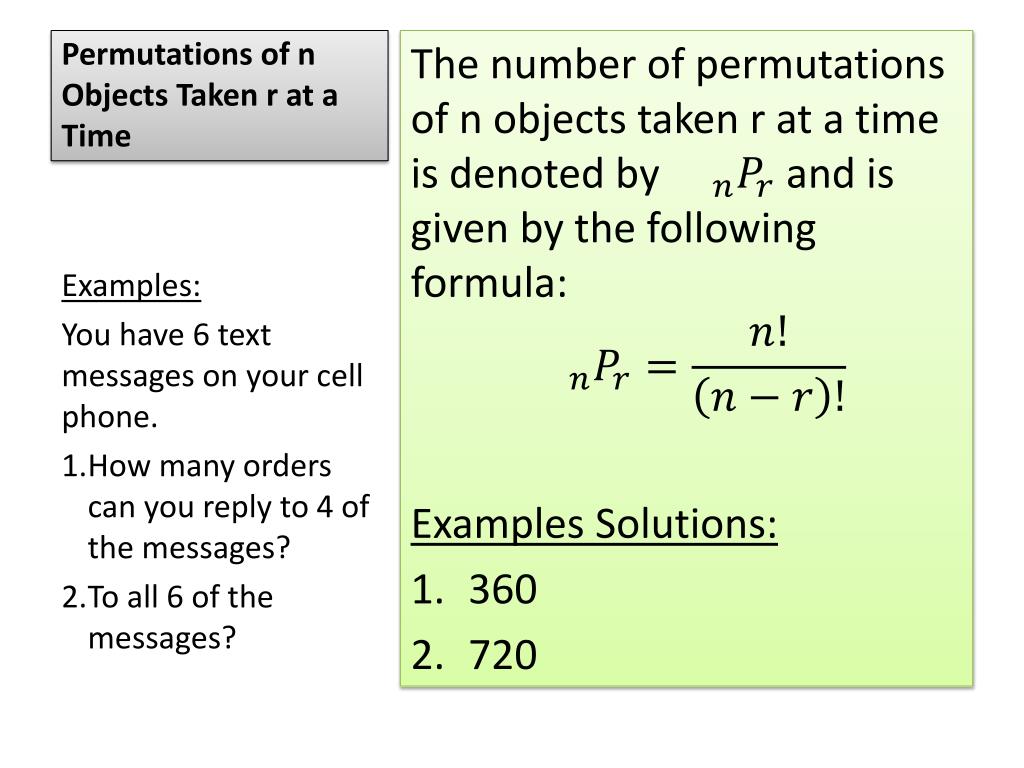
Essentially this can be referred to as r-permutations of n or partial permutations, denoted as nPr, nPr, P(n,r), or P (n,r) among others.
Permutation order matters code#
If you made up a pass code of 3-5-9-0 but tried. 6 x 5 x 4 / 3 x 2 = 20 This is equivalent to the formula. Permutations The calculator provided computes one of the most typical concepts of permutations where arrangements of a fixed number of elements r, are taken from a given set n. This is an example of a common kind of problem involving ordering numbers. (6 possible objects in 1st slot x 5 possible objects in 2nd slot x 4 possible objects in 3rd slot ) / ( 3! aka the number of duplicates for each ordering) which is 20. For this reason, the combination formula is the permutation formula divided by the factorial of the number of slots k - because the factorial of k is the number of ways k things can be ordered, aka the number of duplicates for each ordering.

In fact, we would count all orderings of the 3 objects A B C (3 FACTORIAL orderings) as one combination. A permutation of a number of objects is the number of distinct ways the objects can be arranged and order is important in the calculation of permutation. This means that (A, B, C) is the same as (C, B, A). This is the total number of permutations (order matters) with Kyra in it.

Famous joke for the difference is: A combination lock. For a combination, order does NOT matter. Hence, Permutation is used for lists (order matters) and Combination for groups (order doesnt matter). In other words there are 6 total objects and 3 slots to put them in.

This means that there are 6 objects to be taken 3 at a time.


 0 kommentar(er)
0 kommentar(er)
